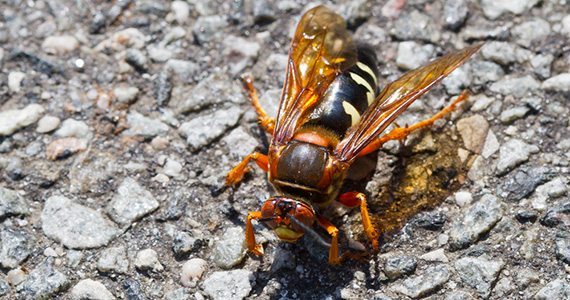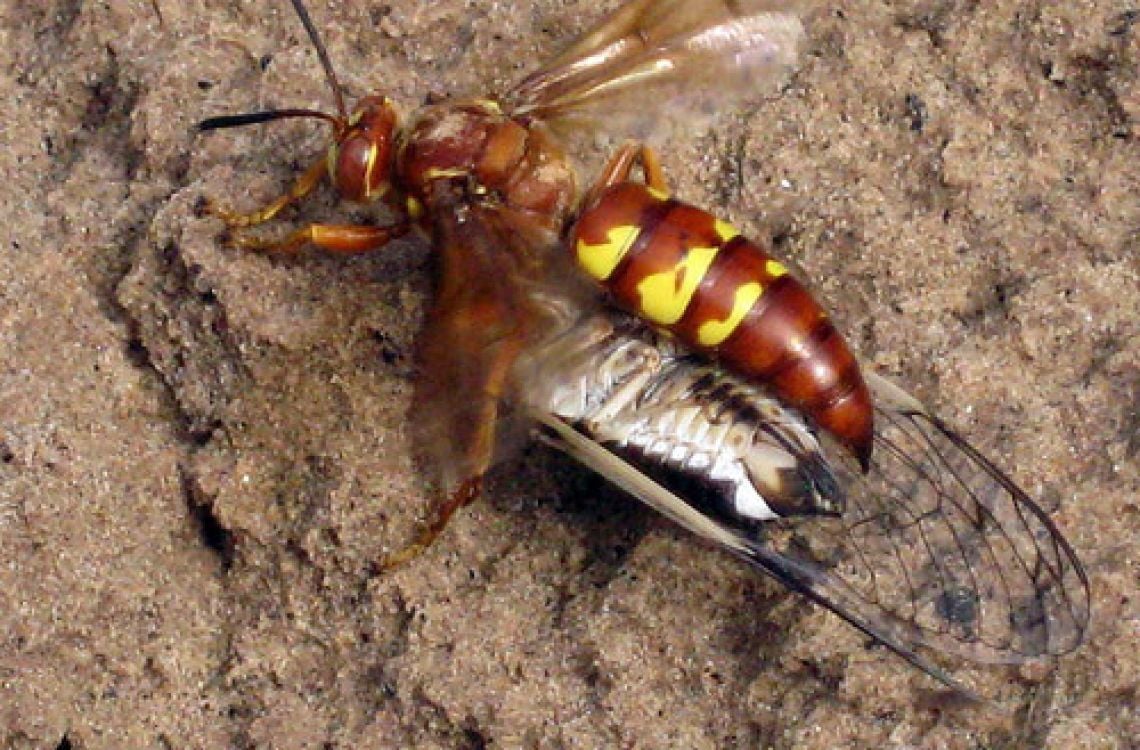

Before using any insecticide, always read the label directions to confirm current listing of pests, and follow safety precautions. At close range, adults can be killed with a wasp aerosol as they light on foliage or enter the nest burrow. You may need to repeat treatments for 2-3 weeks if new wasps move into the area. Be careful not to disturb the burrow as the female must walk through the dust for control. Cicada killer grubs hatch in mid-July above ground for 2-6 weeks all adults die annually.Ĭicada killers can be controlled with Sevin dust or liquid near each nest entrance. They tend to be very curious and protective buzzing people as they walk through their lawns and gardens.Ĭicada killer females use their sting and paralyze cicadas and feed them to their young. Spurred on to greater depths: large barbs on her hind legs turn a female cicada killer into a soil-moving machine. The average life span of an adult female is only two weeks. However, these large, slow flying wasps are not aggressive like yellow jackets, hornets or wasps. A cicada killer sting causes sharp pain that may last as long as a week, but these wasps are not aggressive, and they sting only when provoked.

Cicada killer wasps are very large hornet-like bees that would seem to pose an immediate threat, especially to those allergic to bee stings or with small children. Some have expressed concern about giant “hornets” buzzing them and digging in their lawns. If you are dealing with a cicada killer wasp problem, contact your local wasp removalexperts for help.Late July is generally the month when insects and other pests flourish in our landscapes. The burrowing behavior of this wasp can damage the roots of plants and make some structures, like walkways and pathways, unstable. Female wasps dig fairly large burrows, making quite a large mess near plants and vegetation. A sting from a cicada killer wasp can be painful and their venom may cause an allergic reaction in some people.Ĭicada killers can be a nuisance if they are found on your property. Combine their large scary size, their ability to sting, and their habit of digging unsightly holes in yards to nest, this.

Cicada killers will sting as a last resort out of self-defense if disturbed.
#Cicada killer sting how to
Males are aggressive and territorial but do not possess a stinger. Our DIY cicada killer treatment guide will show you how to get rid of Cicada killers fast. Unlike other wasp species, cicada killers are not very aggressive and rarely sting humans or pets unless they are disturbed. Cicada Killer Wasp Behaviors, Threats, or Dangers The male wasp flies guard duty over the lawn, chasing away potential predators. A pile of soil often surrounds the entrance. Frequently, dozens of their burrows are located in lawns and on golf courses. The cicada killer wasp nests in the ground near cicada populations. Cicada Killer Wasp HabitatĬicada killer wasps appear as adults in late June or July and are mostly seen visiting flowers or digging burrows in sandy or light soil. They may be found on sloped terrains, in flower beds, along patio edges or sidewalks, as well as in the yard. These wasps dig holes or burrows, preferably in soft, sandy, and well-drained soil. Cicada killers are found throughout the U.S., Mexico, and parts of Central America. Female wasps often attack cicadas in flight, sting them until they become paralyzed, and take them back to the nest to feed her larvae. Cicada Killer Wasps in Central and Eastern VirginiaĬicada killer wasps are one of the largest wasp species in North America.


 0 kommentar(er)
0 kommentar(er)
